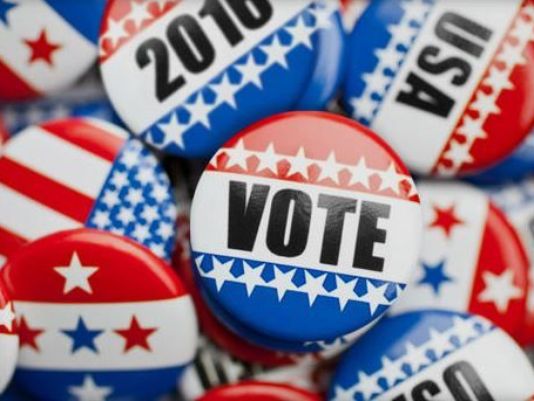Amid reports today that Gallup, one of the longest running political pollsters, is sitting out the 2016 presidential cycle, concerns grow among the entire polling industry about whether current methodology remains sound. The questions have arisen as broadcast outlets continue to rely on poll numbers to determine which candidates are invited to appear on stage in presidential primary debates.
First, a report on the industry as a whole, from Politico:
Pollsters surveyed by POLITICO have a unanimous warning for the Republican National Committee and the TV networks who are using public-opinion surveys to exclude presidential candidates from debates: Don’t trust polls to detect often-tiny grades of opinion in a giant field.
Indeed, the unprecedented reliance on polls to winnow the Republican field is coming at a time when many pollsters feel they’re blinder than ever to trends in public thinking — and that using polls to keep out candidates who are otherwise well qualified could seriously alter the race.
“Polls are being used to do a job that they’re really not intended for — and they’re not as qualified for as they used to be,” said Cliff Zukin, a professor at Rutgers University and past president of the American Association for Public Opinion Research.
Zukin warned that polling has become increasingly unreliable because Americans are harder to reach — nearly half of adults are unreachable on a landline phone — and roughly nine in 10 are unwilling to participate in surveys even when pollsters manage to contact them. The declining response rates, Zukin says, create a situation in which true public feelings are more difficult than ever to discern.
But when CNBC announced on Wednesday its criteria for the Oct. 28 GOP debate, it marked the third time out of three debates that the sponsoring news organization is using the candidates’ standing in public polling as the main determinant for eligibility.
In other words, instead of using polls as a way to reflect the mood of voters, the polling industry is now being used to alter the entire course of elections by acting as a gate keeper to debate stage access. Sure, there has to be a cutoff or everyone registered as a candidate with the FEC could be on stage. However, the question comes down to whether the practice of rounding poll averages up and down, which will determine the lineup of candidates appearing in a primetime broadcast, is a proper use for opinion polls.
If the margin of error is a few percent in either direction, then the candidate at 1% might actually have 3%, and the candidate at 5% might actually have 2%. However, media outlets are using down to the tenth of a percent to decide podium placement and debate invitations.
Segue this into Gallup’s unprecedented decision to step away from presidential polling this year, also a report from Politico:
Gallup has been the country’s gold standard for horse-race election polling ever since its legendary founder, George Gallup, predicted Franklin Roosevelt’s landslide reelection in 1936.
But after a bruising 2012 cycle, in which its polls were farther off than most of its competitors, Gallup told POLITICO it isn’t planning any polls for the presidential primary horse race this cycle. And, even following an internal probe into what went wrong last time around, Gallup won’t commit to tracking the general election next year.
It’s a stunning move for an organization that built its reputation on predicting the winners of presidential elections. But it comes at a time of unusual tumult in the polling world. Other top-level brands like the nonprofit Pew Research Center have yet to poll the horse race, and still others have expressed concern about the accuracy of polling at a time when fewer people are reachable or willing to talk to pollsters.
Gallup had vowed to examine its methods closely after 2012. And after a lengthy post-mortem, Gallup editor-in-chief Frank Newport promised to be ready “when the next presidential election” arrived. But so far, Gallup hasn’t been willing to put its methods to the test.
Newport told POLITICO that Gallup has shifted its resources into understanding issues facing voters — and won’t be following the primary horse races, other than asking about how Americans feel about the individual candidates.
Gallup has been a fixture in presidential polling for decades but a tough cycle in 2012 left them as one of the most inaccurate major polling firms in the country. As a result, they vowed to examine their methods and come back strong in 2016. Well, apparently, they’re not confident enough yet to step back in the water. I am assuming that internally they’re doing polls which aren’t being released. By this benchmark, they can poll the races, then wait until voters actually cast votes before deciding whether they’ve made changes that will produce more accurate results.
It’s an interesting shift in American politics as 2016 has ushered in the trend of online polling in addition to automated telephone and live interview telephone polling. Something tells me the debate over polling accuracy in the highly digital age is only just beginning.
Donate Now to Support Election Central
- Help defend independent journalism
- Directly support this website and our efforts
